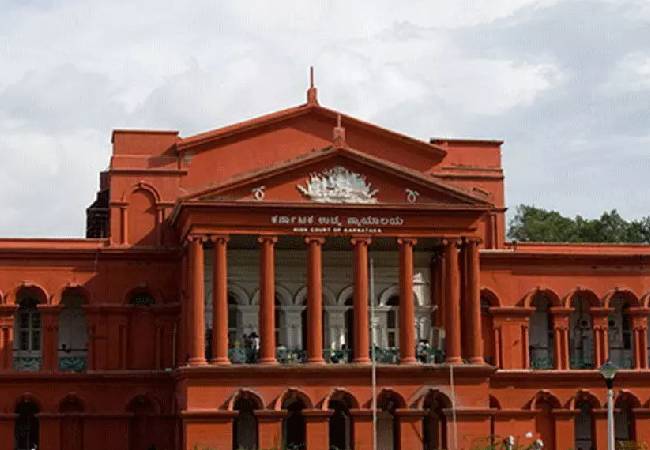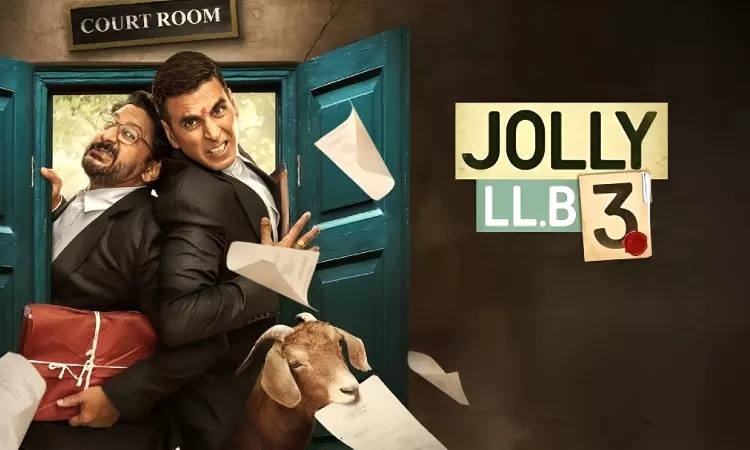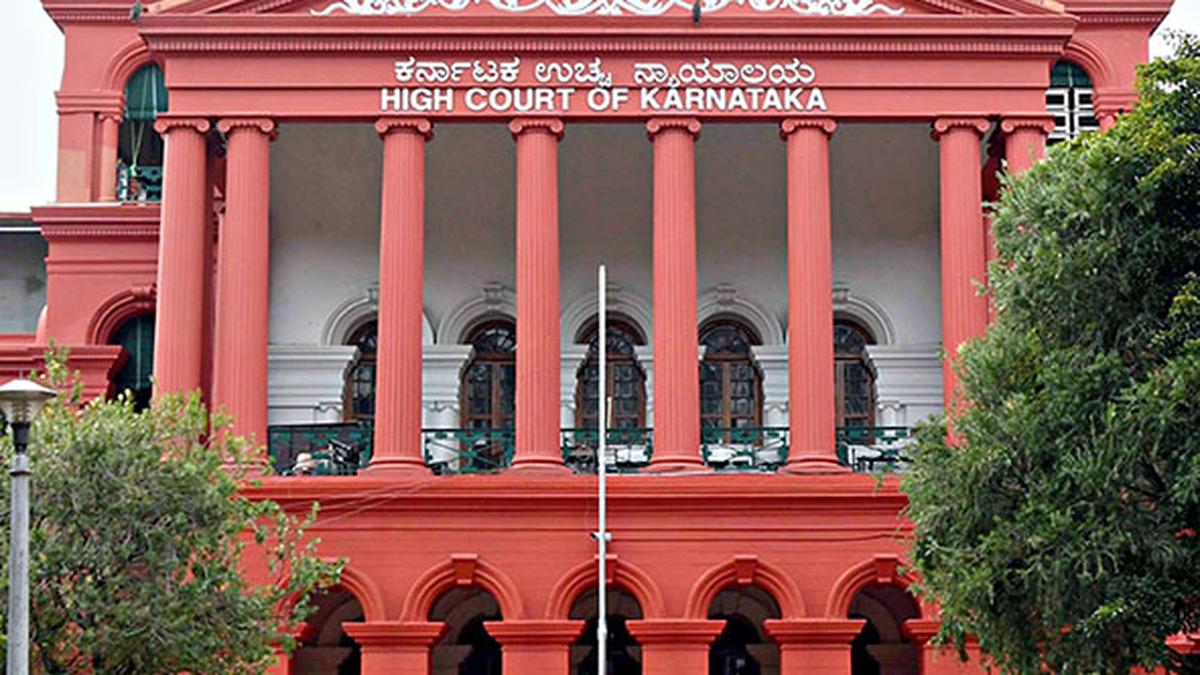The Karnataka High Court has dismissed a plea opposing the release of the much-anticipated film Jolly LLB 3, imposing a cost of ₹50,000 on the petitioner. The bench observed that the objections raised lacked legal merit and failed to demonstrate a substantial cause to restrain the film’s release. The court emphasized freedom of expression and the right to creative work, noting that the film industry plays a crucial role in cultural and social discourse. The ruling allows the film to proceed without further legal hindrance.
The court also addressed concerns that the film might influence public opinion or cause unrest. Judges clarified that cinema is a form of expression designed to inform, entertain, and provoke thought, and that hypothetical concerns cannot justify pre-emptive legal action. By dismissing the petition, the High Court reaffirmed that speculative fears cannot override constitutional rights. The ruling underscores the judiciary’s approach of assessing concrete evidence and legal violations rather than acting on perceived sensitivities, ensuring that filmmakers can present their work without undue restriction.
Filmmakers expressed gratitude for the judgment, noting that it protects creative autonomy and encourages the production of socially relevant content. The ruling signals to the industry that courts respect artistic freedom while also expecting adherence to regulations like CBFC certification. Industry insiders believe this decision will positively influence future projects, giving directors and producers confidence to explore bold narratives without fear of frivolous litigation. This balance between freedom and responsibility creates an environment conducive to both creative expression and legal compliance.
The High Court’s ruling also emphasized judicial efficiency in handling film-related petitions. By promptly disposing of the plea, the court reduced uncertainty for the filmmakers, distributors, and exhibitors. Delays in film releases often result in financial losses, audience disappointment, and logistical complications. The court’s timely decision demonstrates an understanding of the economic and cultural stakes involved, while also sending a broader message to petitioners about the importance of substantiated claims and responsible use of judicial resources.
The decision highlights the importance of legal precedent in creative industries. Courts now have a clear framework for addressing similar challenges, emphasizing evidence, CBFC certification, and actual legal violations over generalized objections. This precedent will guide future disputes involving content, religious sentiments, or community representation. By setting these standards, the High Court ensures that creators can operate with confidence while maintaining accountability, and that individuals or groups seeking judicial intervention understand the need for substantive, credible arguments.
Finally, the judgment strengthens public awareness about the balance between freedom of expression and legal limitations. Citizens observing the case understand that art and cinema are protected, and that courts will intervene only when specific legal thresholds are crossed. By combining freedom with responsibility, the ruling reinforces constitutional principles while discouraging misuse of litigation to stifle creative works. Jolly LLB 3 can now reach audiences as intended, serving its purpose as both entertainment and commentary, while the legal framework continues to uphold the rights of creators and the public alike.

The petitioner had argued that the film contained content that could hurt sentiments or portray certain groups unfairly. However, the High Court found the claims unsubstantiated and rejected any notion that the release could be legally restrained. The bench noted that precautionary measures, like disclaimers or certifications from the censor board, adequately protect public interest. By dismissing the plea, the court reinforced the principle that creative freedom cannot be curtailed without a compelling and legally valid reason, balancing societal sensitivities with constitutional rights.
Industry representatives welcomed the verdict, stating it provides clarity and ensures that creative productions are protected from frivolous litigation. Producers and filmmakers expressed confidence that the judgment will encourage artistic expression while maintaining accountability through standard regulatory mechanisms. Legal experts noted that the imposition of a ₹50,000 cost on the petitioner serves as a deterrent against unsubstantiated petitions aimed at delaying or obstructing film releases. The ruling underscores the judiciary’s support for creative freedom while ensuring responsible exercise of rights.

Upholding Creative Freedom
The High Court emphasized that artistic expression and film production enjoy constitutional protection, provided they adhere to standard legal guidelines.
The judgment balances societal sensitivities with creative freedom, reinforcing that unsubstantiated pleas cannot prevent the lawful release of films.

Court Supports Film Release
By dismissing the plea and imposing a cost, the Karnataka High Court reinforced the principle of protecting creative expression and discouraging frivolous legal actions against filmmakers.
The controversy surrounding Jolly LLB 3 arose when the petitioner approached the Karnataka High Court, claiming that the film could potentially offend public sentiments and misrepresent certain communities. The petitioner sought a stay on the film’s release, citing possible social unrest. However, upon reviewing the submission, the bench noted that no concrete evidence was presented to substantiate the claims. The court emphasized that freedom of expression is a fundamental right and cannot be curtailed on mere apprehensions or subjective interpretations of content, setting a clear precedent for creative works.
Legal experts highlighted that the High Court’s ruling reiterates the importance of following proper channels for content review, such as certification from the Central Board of Film Certification (CBFC). The court observed that the CBFC certification ensures films are screened for potentially sensitive content before public release. Since Jolly LLB 3 had obtained the required certification, there was no legal basis to restrict its release. This judgment reinforces that due regulatory processes, when properly followed, provide sufficient safeguards without unnecessarily infringing upon creative freedoms.
The imposition of ₹50,000 cost on the petitioner was noted as both punitive and deterrent. The court clarified that frivolous petitions, which lack substantive legal merit, can cause delays and unnecessary expense for the film industry. By imposing this cost, the bench sent a strong message discouraging attempts to obstruct film releases through litigation that lacks proper grounding. Legal analysts opined that this decision will serve as a reference point for similar cases in the future, ensuring that filmmakers can operate without undue legal harassment.
Producers and industry stakeholders welcomed the judgment, emphasizing its importance for the creative ecosystem. They noted that frivolous objections have often caused delays and financial losses in the past. By dismissing the petition promptly, the High Court protected not just the rights of the filmmakers but also the interests of distributors, cinema owners, and audiences eagerly awaiting the release. The judgment was seen as a reassurance that courts recognize the need for timely release of creative works while balancing public sentiment considerations.
The ruling also highlighted the judiciary’s recognition of the broader social value of cinema. Films like Jolly LLB 3 are not only entertainment but also a medium for reflecting societal issues, legal processes, and civic awareness. By protecting the release, the court reaffirmed that creative works have an essential role in fostering public discourse. The bench noted that cinema contributes to cultural dialogue and awareness, and judicial intervention should be limited to cases with demonstrable legal violations, thereby safeguarding artistic expression.
During proceedings, the court scrutinized the petitioner’s arguments, which included claims of defamation and misrepresentation. However, judges pointed out that generalized allegations and hypothetical scenarios could not justify an injunction. The bench emphasized that the legal system must balance sensitivity with constitutional rights. This careful analysis underlined the principle that freedom of expression carries inherent responsibilities, but speculative claims alone cannot override fundamental rights. The judgment sets a benchmark, clarifying the evidentiary requirements necessary for seeking judicial intervention against a film’s release.
Public and media reactions to the verdict were largely positive. Film enthusiasts and industry insiders expressed relief that the legal hurdle had been removed, allowing audiences to view the film without delay. Critics observed that the ruling also strengthened the industry’s confidence in the judicial process, highlighting that courts can act decisively to protect creative expression. Social media responses praised the decision for discouraging vexatious litigation and supporting filmmakers in their pursuit of artistic storytelling, reflecting a wider recognition of cinema’s cultural and economic significance.
The High Court’s decision has implications for future disputes over film content. Legal observers predict that petitions based on subjective interpretations of creative work will now face greater scrutiny. Courts are likely to require concrete evidence, proper procedural adherence, and substantive claims before entertaining any request for pre-release injunctions. This approach aims to balance the rights of creators with societal concerns, ensuring that the legal framework does not become a tool for censorship while protecting public order and sentiment when genuine risks are demonstrated.
The judgment also sends a strong message to advocacy groups and individuals seeking to influence cinema releases through litigation. The court emphasized that creative freedom is protected under the Constitution, provided statutory guidelines and censorship requirements are met. Frivolous or politically motivated petitions intended to delay or obstruct releases are subject to penalties, as demonstrated by the cost imposed. This stance ensures accountability and discourages misuse of the judicial process, supporting a fair and predictable environment for the film industry in Karnataka and across India.
Finally, the verdict allows Jolly LLB 3 to release without further hindrance, enabling audiences to engage with the film as intended. Producers can move forward with marketing, distribution, and theatrical schedules, ensuring commercial viability. The court’s clear reasoning and decisive action reinforce the principle that creative expression is protected, while frivolous litigation will not be entertained. This ruling strengthens both the legal and cultural framework for cinema, highlighting that freedom of speech, coupled with regulatory compliance, remains a cornerstone of India’s democratic and artistic ecosystem.
Follow: Karnataka Government
Also read: Home | Channel 6 Network – Latest News, Breaking Updates: Politics, Business, Tech & More

